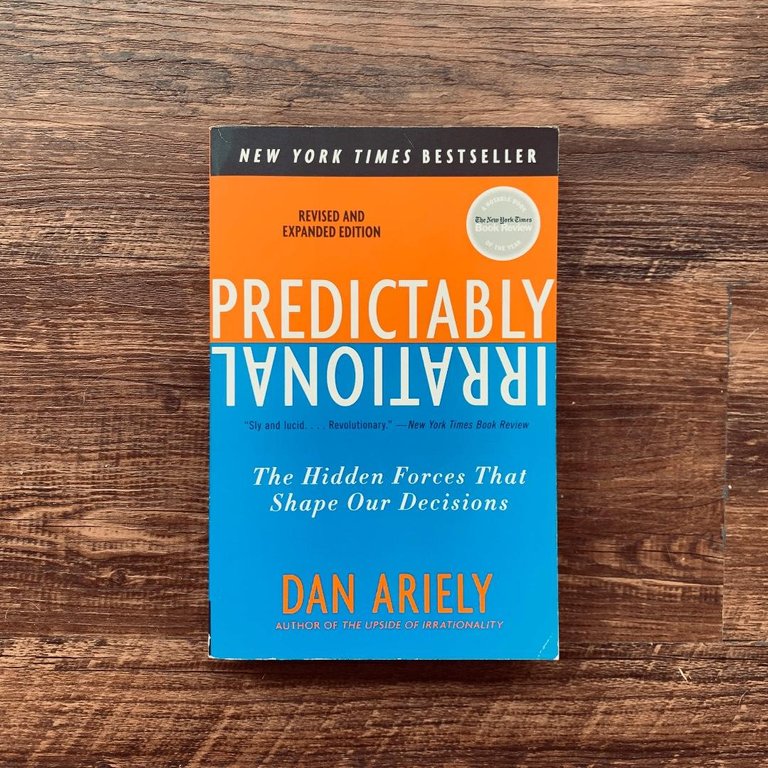Do you think you're smart with your spending decisions? That you know how to make the choices rationally? I would urge you to reconsider.
A disclaimer at first. I don't like self help books. I have my reservations about them and I think they can be very limited in their applications. Also most of the time the ideas they contain are grossly subjective. So choosing books anent human behaviour, I have to be vigilant, careful. I've discovered there is a thin line between a self-help title and a nonfiction book on behavioural economics. The latter is usually backed by countless experiments undertaken by professional experts.
Dan ariely's predictably irrational is one such a book. Mr Ariely is the professor of psychology and behavioral economics in Duke University. Over the years, he worked with his other colleagues and students to find out what ticks human beings in their economical decisions. Some of the findings are really obvious and readily understandable since we make them every single day. And some are not so common knowledge, like why supply and demand doesn't always follow classical economics.
For instance, we really love free things. Even though we might have to kill a lot of time, valuable time to get that stuff. And the free stuff are not usually worth that time. We still do it. Because it's FREE! Because there's no chance of losing. But free things often come with a catch. Something is free to lure you in. As mister ariely puts it, the zero has a cost too.
Let's talk about another example. You often do stuff or favours for people you know. But you don't expect monetary compensation for them. Because social norms and market norms are entirely distinct ideas. When you incorporate market norms into social norms, both of them will go south. This is what happens when a company tries to be really lovey-dovey with their customers and lose them when they make even one mistake.
We overvalue ownership. Imagine you have something to sell. You have decided on a price. Do you think a buyer will agree to that price? No, they will haggle and are likely to offer you a far lesser price. We tend to price our stuff highly based on our attachment with the item, not necessarily by judging the market value.
We tend to choose options based on relativity, even though that option might not be good for us. Marketeers often used that relativity to force a crowd towards a certain product or service.
We often buy products with more options than we would probably ever need.
We think that a 50 Cent aspirin will work better than a 1 cent aspirin and this placebo effect works beautifully.
I know what you are thinking. These are pretty much common sense. When you think about it, they don't seem like some deep research findings, do they?
Actually Ariely provides logic, how these 'common sense' work. That the decisions we make are irrational but at the same time predictable. If you're someone into marketing and selling stuff, you'd find some interesting aspects of human tendencies.
And most of his experiments were really fun to read.
And lastly, rather than suggesting what to do, Ariely puts forward his findings and draws conclusions from them. It's not like reading it will make you a genius overnight or you absolutely have to read it or it's 'one book to rule them all'. But it can be your window to this new discipline of behavioural economics.

My rating - 4/5

Congratulations @notacinephile! You have completed the following achievement on the Hive blockchain and have been rewarded with new badge(s) :
You can view your badges on your board And compare to others on the Ranking
If you no longer want to receive notifications, reply to this comment with the word
STOPSupport the HiveBuzz project. Vote for our proposal!